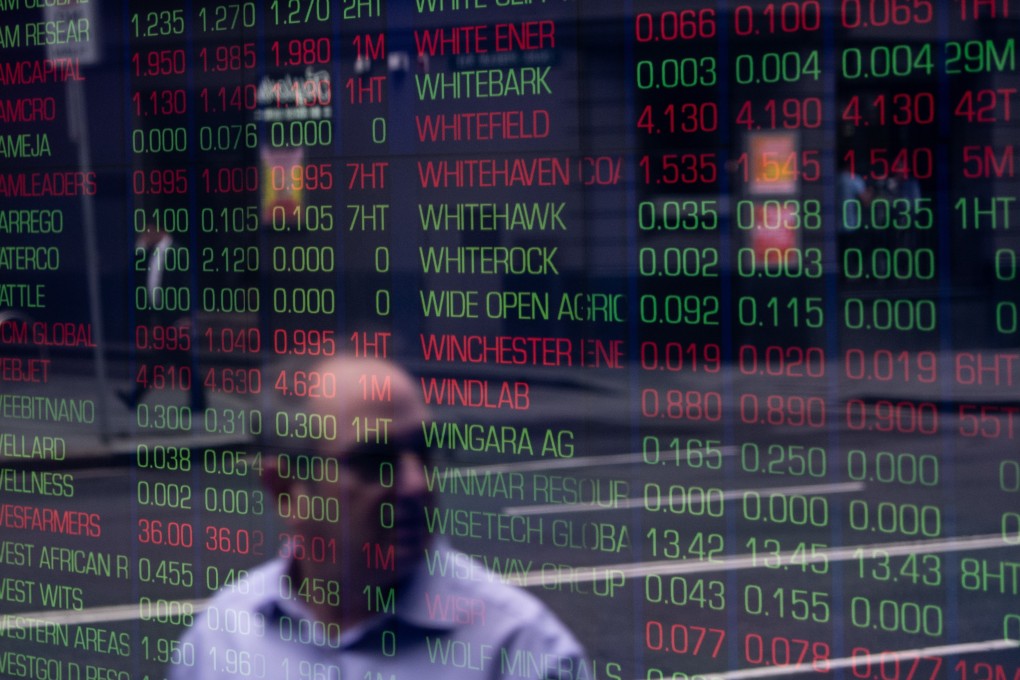Asian stock markets revert to declines as buzz from cash hand-outs gives way to pessimism about worsening coronavirus outbreak
- Tencent, Alibaba, AAC Tech, Sands China are among losers of more than 4 per cent
- Hang Seng lost nearly 1,000 points

Stock market carnage returned Wednesday, as Asia-Pacific markets tumbled on global pessimism about the spreading coronavirus, with Hong Kong, South Korea and Australia leading losses.
US futures fell despite the US$1 trillion stimulus package in the works in the world’s largest economy to mitigate the economic fallout of the novel virus.
Hong Kong’s Hang Seng Index plunged 4.2 per cent, or 971.91 points, to 22,291.82, with 49 of the 50 constituent members posting losses. This was the fourth time this year the Hang Seng Index has dropped more than 900 points. On March 9, the gauge tumbled by 1,106 points.
The Hang Seng last traded around that level in January 2017. Investors have seen their portfolios clobbered, and the benchmark is down 20 per cent for the year.
Big name companies listed in Hong Kong fell hard. Stocks falling more than 4 per cent included Tencent, Alibaba, AAC Tech, Sunny Optical and casino operator Sands China. (Alibaba is the parent company of the South China Morning Post.)
The Shanghai Composite Index turned down as well, closing with a 1.8 per cent loss.